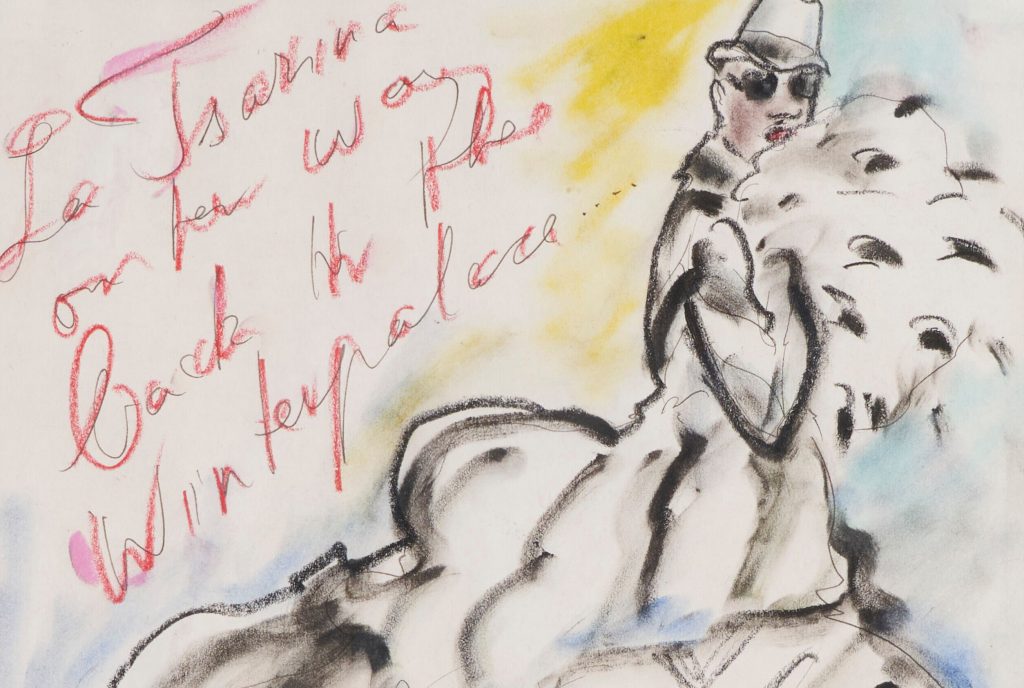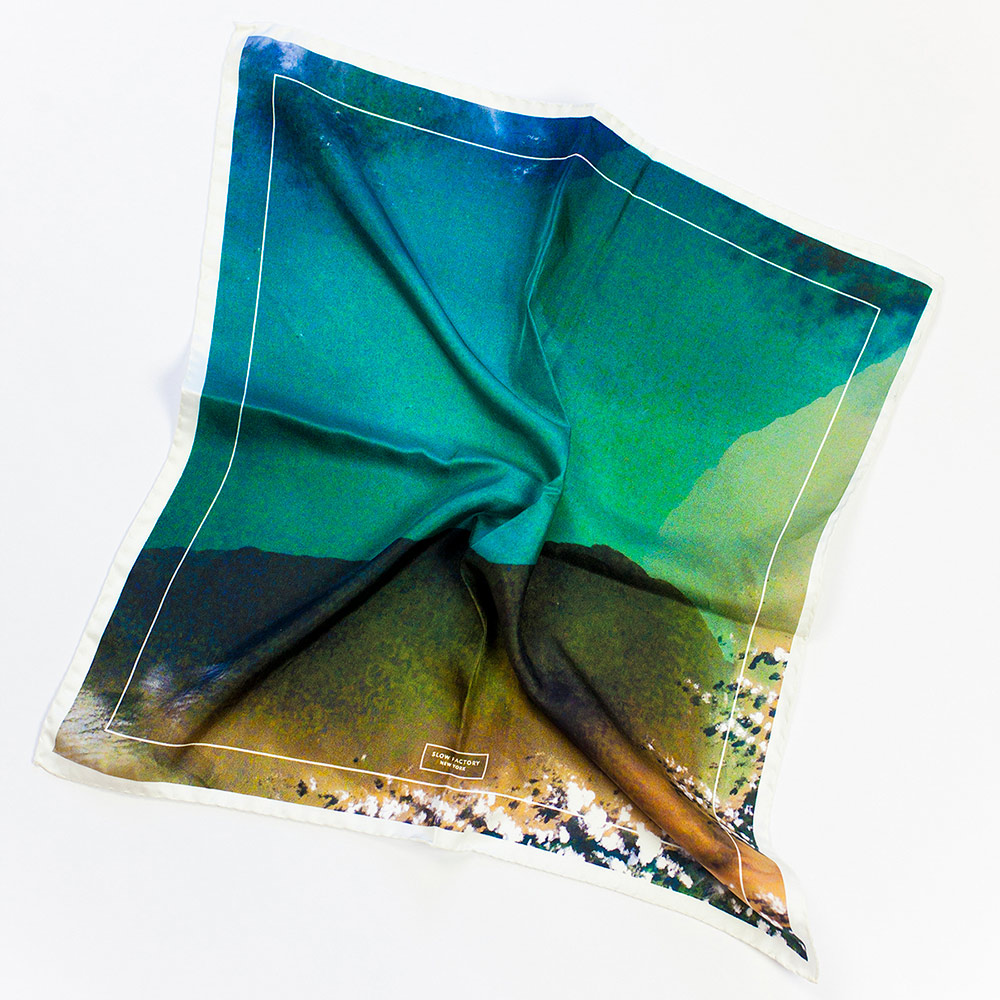Interview: Fionn Dobbin of MAMMU scarves
The altruistic entrepreneur on merging fashion, design and social business to aid Latvian mothers in need


The words Latvia, high fashion and social change aren’t usually uttered in the same sentence, but one man with a million ideas has already begun changing this. Half-Irish, raised in Germany and now based in Latvia, Fionn Dobbin is an international force to be reckoned with—combining years of design experience with business knowledge to come up with creative solutions to social problems.
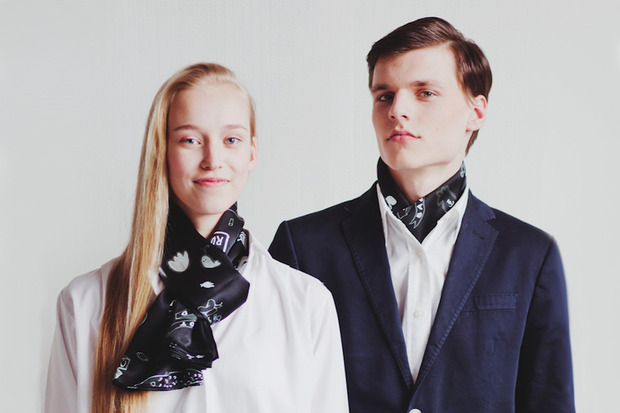
After graduating with a Master’s in industrial design from Berlin University of the Arts, Dobbin designed a toilet with some colleagues to aid the 2.6 billion people worldwide who had no access to sanitation, nor awareness of its necessity. Through this project, Dobbin met Nobel Peace Prize recipient Dr Muhammad Yunus, co-inventor of microcredit and founder of the Grameen Bank, and worked at the Grameen Creative Lab where new social business ideas are developed.

When not lecturing at the Stockholm School of Economics in Riga, Latvia, Dobbin is working on his latest project MAMMU, a social fashion business whose cause is providing flexible working hours for Latvian mothers who juggle both childcare and earning an income. The company follows the seven Grameen principles of social business, yet being cause-driven rather than profit-driven doesn’t compromise the quality of the product. MAMMU has collaborated with different Latvian designers to produce original unisex scarves that could be found inside the pages of a fashion editorial.
Dobbin’s passion for using design thinking to solve social problems and his enthusiasm as an active change-maker was contagious throughout our interview. We spoke with the founder and creative director of MAMMU about the newest collaboration with New York-based menswear designer Ernest Alexander, starting a successful social business with only €500 and his next experiment—naturally grown clothes hangers, made with help from retired elderly.
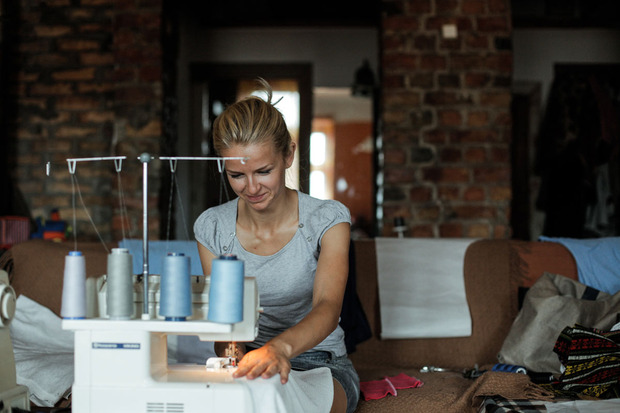
Is the name MAMMU a reference to mothers?
Andris and myself, since we both worked in branding for quite a long time, we wanted something that connected with our business mechanics and principles and with our social cause and, on the other hand, we wanted something that is internationally understandable. So it should be something not too Latvian but still should have an Latvian identity and yet be understandable for German, French, American and so on—so we wanted a global name. In Latvian, mammu is the sweet version of mother, so when a child is missing their gloves or needs something, they say, “Mammu, Mammu.”

What gave you the impetus to start a company that specifically helps Latvian mothers?
It started with one person. The sister of our friend became a widow after her husband died in a car accident. She was suddenly left alone—she had four children at home and she didn’t know how to deal with the situation because there was not enough financial support from the government. It was very, very hard for her to find a job and at the same time to be a mother.
She was the inspiration for MAMMU and we analyzed that there were a lot of women in the same situation. In the beginning we were always talking about “single mothers.” Of course, it’s hardest for the single mother but soon the women who started working for us asked, “What happens if we fall in love, do we stop working for you then?” So we skipped the “single” because actually it’s none of our business if they’re in a relationship or not. We shifted from “single mothers” to “mothers in need”: Mothers who have to combine childcare and earning money and can’t find a job due to the fixed working hours of the job market.
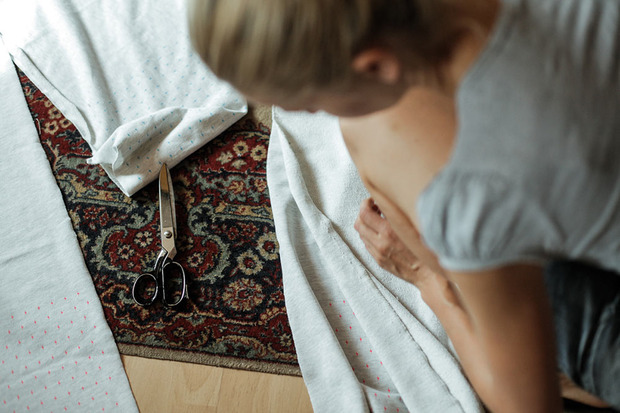
How did you fund the launch of the first collection?
Andris Rubins works at DDB and is my partner at MAMMU. Together we created this company, which at the beginning was just a project. We invested just €500 to create our first collection of scarves, our identity, our visual communication, our webpage, our first exhibition and our first photoshoot. It was, of course, with the help of all our friends: I got our friend who is a photographer to help us do the shooting, the models were people we knew, the designer she did it because she thought it’s a cool idea. So it was really only the material costs. MAMMU was, right from the beginning, something like a community project—something like a movement. Everybody gave us a little bit of their talent, of their creativity, to start it.
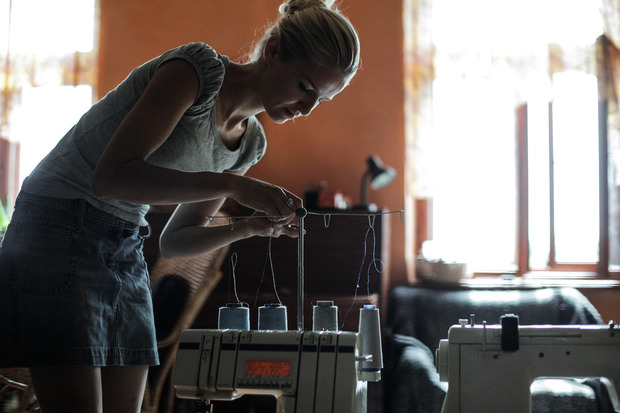
What kind of work do the mothers do?
We have several fashion items designed by established designers. We train the mothers together with tailors and with the designers; we show them how to produce our products. We give them textiles so they can work from home and then we have lawyers who help them set up a micro-production company. So all the mothers are like small companies themselves, which is quite nice because they learn how to be entrepreneurs—establishing their own company to do production for many other companies. This is where we’re shifting at the moment: We started as a fashion label but offer fashion production and fashion development for other design studios in Germany and Latvia.
We help them develop a sketch into a decent design product. Together with the mothers we produce them and together with our team, we help them collect beautiful and sustainable materials, set up professional shooting, etc. We’re now a design production and development company. There is a big demand from small design labels worldwide who want to produce in a sustainable way, but for them it’s very hard to set up a social business production line. We’re now becoming broader and as a result, we can hire more mothers.

So our high time is of course winter and Christmas, then we have 30 mothers working for us. In the summertime, it’s around 10. But through our new business mechanics through working and collaborating with other labels, we will probably expand in the next several years to have at least 2,000 working hours every month, regardless of the time of the year, and go up to 4,000 to 5,000 working hours.
We don’t want people to buy products of bad quality to only help poor mothers. We want people to buy products because they are high quality, homemade and have beautiful design.

How does the MAMMU business model work?
We don’t take the profit out of the company. We use the profit to expand our company and further develop it. A social business is a mixture of a traditional business and a non-governmental organization. A charity dollar has one life, but a social business dollar has many lives because it recycles itself. We take the business mechanics from a traditional business, which is based on economical self-sustainability, and we combine it with being cause-driven rather than profit-driven. So that means if we make $2 million in one month, you won’t see me driving a Ferarri because the only thing I would do is make the company bigger. Because the bigger we get, the more mothers we can employ, and the better we can fight against the social tensions.
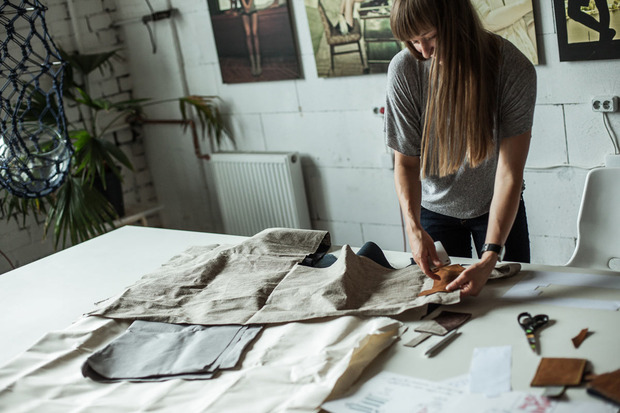
Has MAMMU ever considered working with the Latvian government to aid mothers in need?
It’s important to be a part of the business community; we don’t want to have any special status or tax reduction from the government. Because in the end, from the outside, we’re a normal company—we have high quality products and do high quality consulting, design execution and production. But from the inside, we’re different. From the inside, we are a social business—cause-driven and not-for-profit.
I don’t want to wait until the government moves their ass and does something—I just want to do it myself.
I don’t want to sit in front of the TV and complain and get angry. I don’t want to wait until the government moves their ass and does something—I just want to do it myself. I don’t have time for complaining, I want to do joyful things, and I can only do it myself. The government can’t make me smile, I make myself smile. Social business is a tool where we can do something ourselves.


How did MAMMU come to collaborate with a New York-based designer, Ernest Alexander?
We reached out because Ernest has Latvian roots. He was invited to hold a lecture in Latvia about his fashion company—it’s very impressive and amazing what Ernest has established in a very short time. He’s quite young and the coolest thing is, he has a business background. He was working in finance and then one day he just said, “I actually want to do fashion.” That was three years ago, and he created the perfect men’s bag. We’re very inspired by Ernest because he produces all of his products in America using high quality textiles, so it already has a social business approach.
We will do a launch in October in New York at his flagship store. We will have mittens, gloves, hats, iPad backs, bow ties, iPhone and leather laptop cases—it’s a really big collection of beautiful accessories. All the fabric is from Latvia and in each product there is a Latvian reference. The design is inspired from Latvian folklore, so we will work a lot with Latvian techniques such as knitting and typical traditional materials like high quality linen and leather. It’s America meets Latvia; you will really see those two worlds meeting each other.

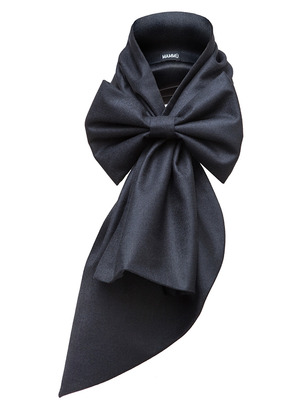
Are the previous designers that MAMMU has collaborated with also from Latvia?
The QooQoo collection is designed by the Latvian designer Alyona Bauska. The black fine wool scarves are with MAREUNROL’S. They are from Latvia and they’re very celebrated within the high fashion world. They are on the list of 100 upcoming fashion designers on this planet at the moment. That’s why I enjoy living in Latvia so much—there’s so much discovery and so much talent here.
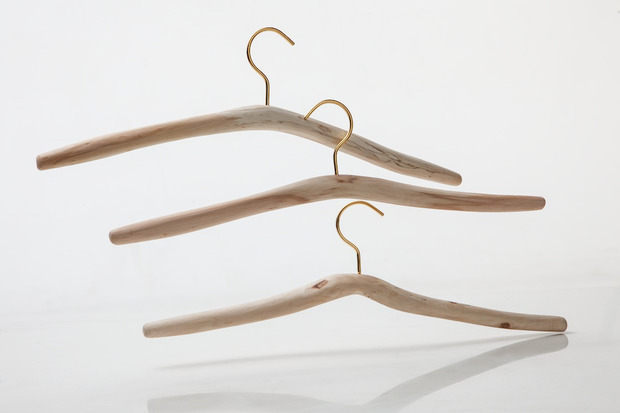
Aside from the Ernest Alexander collaboration, what other things does MAMMU have up their sleeves for the future?
A little side project we did with eco-designer Georg Dwalischwili is working with the retired elderly in the Latvian countryside. Grandfathers walk through the forest and they look for branches which are already bent like a clothes hanger and then they carve them and sand them down and then we have a blacksmith who adds a hook to it. So we have naturally grown clothes hangers. It’s just an experiment, but it’s the next direction that we will establish further.
MAMMU scarves and hangers are available on their website and the ethical boutique Helpsy, with prices ranging from $41 to $168. The MAMMU + Ernest Alexander line of accessories will be available for purchase at the flagship Ernest Alexander store in New York this October.
Images of product-making and wooden hangers courtesy of Nils Vilnis, second image courtesy of Ilze Vanaga, all others courtesy of MAMMU
